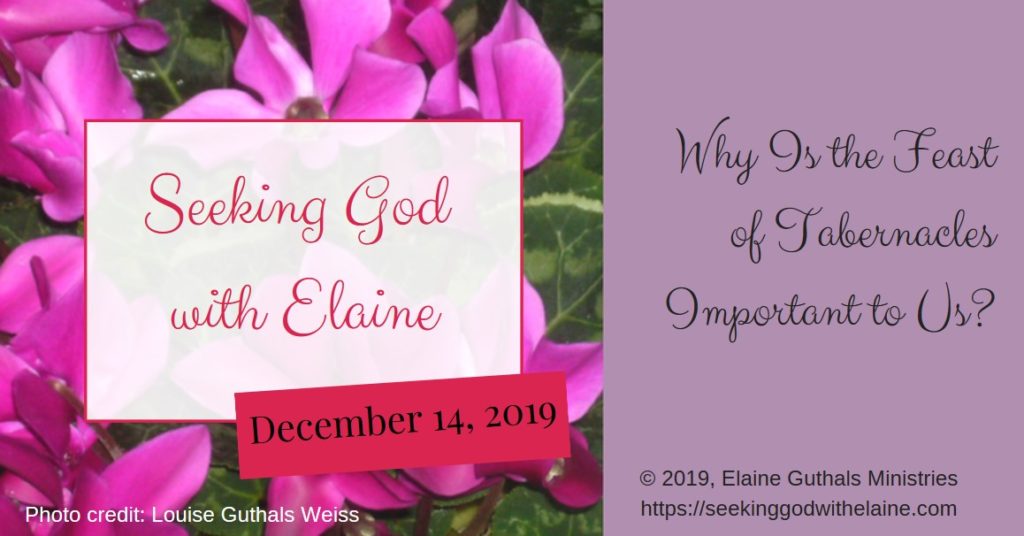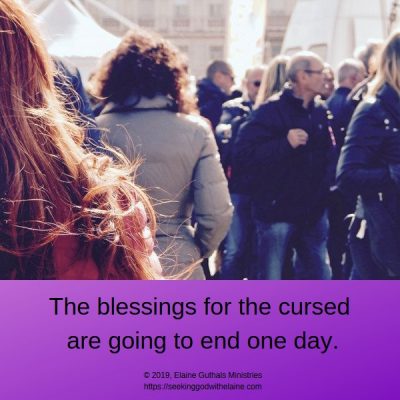Nuggets
- The Feast of Tabernacles was to be a celebration.
- And we are still celebrating the Festival of Tabernacles in heaven.
- Refusing to worship God has consequences.

There were several festivals mentioned in the Bible. Are they all past history? This devotion looks at the Feast of Tabernacles and why it is important.
Let's Put It into Context
“The Lord said to Moses, ‘Say to the Israelites: ‘On the fifteenth day of the seventh month the Lord’s Festival of Tabernacles begins, and it lasts for seven days’’” (Lev. 23: 33-34 NIV)
The Feast of Tabernacles was to be a celebration. Grout described it as “a protracted religious meeting.”
It happened five days after the Day of Atonement (Num. 29: 12) and lasted for seven days (Lev. 23: 34). The purpose of the festival was to remind the Israelites of their deliverance: from Egypt and from sin.
It also reminded them from where they came. They had been slaves in Egypt — and now they were landowners. To get there, they had to go through a lot.
There was three components to the festival. It was a remembrance of the years of wondering in the wilderness. Yes, they had a lot to remember. God always wants us to remember how he has provided for us.
One of the things God provided was His presence. We talked recently about the tabernacle where He lived among them and the pillar that led the wanderers.
The festival was timed after the gathering of the crops. This, too, showed how God continued to provide for them.
Because of God’s provision, the Israelites were to make the daily sacrifices. Oh, man — were they supposed to sacrifice! Over the eight days, here are the totals:
Bulls – 71
Rams – 15
Lambs – 105
Goats – 8
Grain – 696+ quarts
That’s a lot. I didn’t get all of the grain offering figured out. There was also a liquid offering that they were supposed to sacrifice.
The third component was the joy they were to experience. Worshiping God is to make us happy. We are to be content where we are at in life (Phil. 4: 11-13).
What was interesting in this festival was that the Israelites were to live in booths or tabernacles during the seven days. That was a throwback to their wilderness wandering years.
But look at it this way. The festival “ended” with their arrival in the Promised Land. What if that was a foreshadowing of our arrival in eternity? It ended on the first day of the new week — the day Jesus rose from the grave.
Why Is the Feast of Tabernacles Important?
“Then the survivors from all the nations that have attacked Jerusalem will go up year after year to worship the King, the Lord Almighty, and to celebrate the Festival of Tabernacles” (Zech. 14: 16 NIV)
Okay, one more thing. We have to go back to Zechariah 14: 1 to frame verses 16 and 17. “Watch, for the day of the LORD is coming when your possessions will be plundered right in front of you!” (Zech. 14: 1 NLT).
The day of the LORD is described in two ways. It is either the day when Jesus returns, or it is the day of judgment. That is an important day!
The ABCDs of Salvation
A – admit our sins
B – believe His Son Jesus is our Redeemer
C – confess God as Sovereign Lord
D – demonstrate that commitment by making any changes needed in our lives to
live the way in which God has called us
If you have not become a believer in Christ, please read through the Plan of Salvation and prayerfully consider what God is asking you to do.
So, this heaven and earth passes away, and we are living our lives for eternity. We are there because we have admitted our sins, believed on Jesus as our Savior and Redeemer, and confessed Him as Sovereign Lord. We demonstrated that commitment by following our job description.
And we will still be celebrating the Festival of Tabernacles.
We will still remember God’s protection and provision. We will be joyous!
But isn’t that what heaven is going to be about? We talked about waking up wherever we are going and remembering our lives here on earth. We also talked about that memory being on steroids because things we have forgotten will be called to mind.
To read a devotion in the Hell Does Have Fury series, click on the appropriate button below.
I don’t know what kind of sacrifices will happen throughout eternity. I would doubt it reverts to the blood sacrifice. Jesus has taken care of that. “He entered the most holy place once for all, not by the blood of goats and calves, but by His own blood, having obtained eternal redemption” (Heb. 9: 12 HCSB).
I would say we keep on being a living sacrifice. “Therefore, brothers and sisters, in view of the mercies of God, I urge you to present your bodies as a living sacrifice, holy and pleasing to God; this is your true worship” (Rom. 12: 1 CSB).
Because worship, we will! “But we will bless the LORD, both now and forever. Hallelujah!” (Ps. 115: 18 CSB).
We will get to sing with the angels! “… Day and night they never stop, saying,
Holy, holy, holy,
Lord God, the Almighty,
who was, who is, and who is to come” (Rev. 4: 8 CSB).
Showers of Blessing
“If any of the peoples of the earth do not go up to Jerusalem to worship the King, the LORD Almighty, they will have no rain” (Zech. 14: 17 NIV)
I am a sunny and 80 degrees type of girl. I love a nice warm day.
If you read my devotions from this spring, you know I got really tired of Mud Spring. Yes, rain is nice on the tin carport — not that much at once for so long.
Refusing to worship God has consequences — “… they will have no rain” (Zech. 14: 17 NIV). That may sound a little squirrely to us, but remember in Bible speak, rain is equated with blessings.
Think of it this way. No rain = no crops. No crops = no food. No food = famine, pestilence, disease, and death.
From where did famine, pestilence, disease, and death come? Those are results of sin.
Worshiping God = loving God. Not worshiping God = not loving God. Not loving God = sin.
Let’s come at it from another angle. “… For he gives his sunlight to both the evil and the good, and he sends rain on the just [blessed] and the unjust [cursed] alike” (Mt. 5: 45 NLT). Right now, everyone receives some blessings.
It isn’t going to stay that way. “He will put the sheep on his right and the goats on the left. Then the King will say to those on his right, ‘Come, you who are blessed by my Father; inherit the kingdom prepared for you from the foundation of the world … Then he will also say to those on the left, ‘Depart from me, you who are cursed, into the eternal fire prepared for the devil and his angels!’” (Mt. 25: 33-34, 41 CSB emphasis added).
We’ve talked about this before. People are sheep on the right because they are blessed. “The person who trusts in the Lord, whose confidence indeed is the Lord, is blessed” (Jer. 17: 7 CSB).
On the flip side is the cursed. “But if you refuse to listen to the LORD your God and do not obey all the commands and decrees I am giving you today, all these curses will come and overwhelm you” (Deut. 28: 15 NLT).
The blessings for the cursed are going to end one day.

Making the Connections
“And I heard a loud voice from the throne, saying, ‘Behold, the tabernacle of God is among men, and He will dwell among them, and they shall be His people, and God Himself will be among them’” (Rev. 21: 3 NASB)
That is what it is all about. Are you blessed, or are you cursed? One day God will dwell among us. Forever.
Jesus dwelled among us for a while. It is interesting that Henry said that many think He was born around the time of this feast.
I know. Jesus left heaven — like the Israelites left Egypt — to live among us. Scriptures really don’t tell us how He lived. We just know that He said, “…The foxes have holes and the birds of the air have nests, but the Son of Man has nowhere to lay His head” (Mt. 8: 20 NASB). Did Jesus live in a tent (tabernacle/booth)?
Leviticus 23: 40 says. “On the first day gather branches from magnificent trees — palm fronds, boughs from leafy trees, and willows that grow by the streams. Then celebrate with joy before the Lord your God for seven days” (NLT). John 12: 12 says, “The next day, the news that Jesus was on the way to Jerusalem swept through the city. A large crowd of Passover visitors took palm branches and went down the road to meet him …” (NLT).
How Do We Apply This?
Zechariah was all about that praise — whether it be bass or soprano or somewhere in between. We should be, too.
Yep, we are going to be singing. And listening to the preaching. And whatever other form worshiping is going to take.
Practice now. Start liking it now.
We have role models through which we can see how to live this life. Look at Jesus. Look at David. Look at Moses. Look at all of them. See how they praised God.
Be in God’s presence whenever we can. Continuously pray (I Thess. 5: 17). Read His Word (Josh. 1: 8). Sing praises (Ps. 105: 2).
This life is preparation for the next. Don’t waste it.
Come, let us sing to the Lord!
Let us shout joyfully to the Rock of our salvation.
Let us come to him with thanksgiving.
Let us sing psalms of praise to him.
For the Lord is a great God,
a great King above all gods” (Ps. 95: 1-3 NLT)
What do you think?
Leave me a comment below (about this or anything else) or head over to my Facebook group for some interactive discussion.
If you don’t understand something and would like further clarification, please contact me.
If you have not signed up for the email daily or weekly providing the link to the devotions and the newsletter, do so below.
If God has used this devotion to speak with you, consider sharing it on social media.